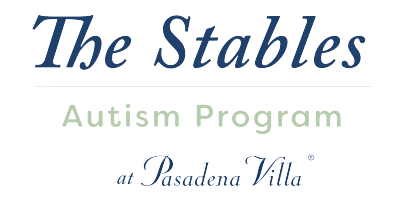Experiential Therapy (ET)
Home » Our Program » Treatment Methods » Experiential Therapy (ET)
What is Experiential Therapy (ET)?
Experiential therapy is a holistic and client-centered approach to therapy that emphasizes the importance of experiential learning and self-discovery. Unlike traditional talk therapy, this therapy focuses on engaging individuals in activities and experiences that encourage emotional expression, self-awareness, and personal growth.
In the context of autism spectrum disorder, experiential therapy offers a unique way to address the specific needs and challenges faced by adults with ASD. It recognizes that individuals with ASD may struggle with verbal communication and benefit from alternative methods of expression. ET offers a secure and accepting place for people to express themselves using different activities that engage their senses and creativity.
How Experiential Therapy Benefits Adults with Autism Spectrum Disorder (ASD)
Those with autism spectrum disorder can greatly benefit from experiential therapy. Learn more about some of the key benefits it offers:
- Enhanced Self-Awareness: Many individuals with ASD struggle with understanding and expressing their emotions. This therapy encourages self-reflection through activities like art, music, and movement, helping individuals become more aware of their feelings and inner experiences.
- Improved Communication: For individuals with ASD, verbal communication can be challenging. ET provides alternative avenues for expression, allowing them to communicate their thoughts and emotions more effectively, even without words.
- Sensory Integration: ASD often involves sensory sensitivities or challenges. Experiential therapy incorporates sensory experiences in a controlled and therapeutic manner, helping individuals learn to manage sensory inputs and reduce sensory overload.
- Emotional Regulation: Many individuals with ASD struggle with emotional regulation. ET provides a safe environment to explore and manage their emotions, teaching valuable coping strategies that can be applied daily.
- Social Skills Development: ET can be tailored to include social activities that help individuals with ASD practice social interactions and develop essential social skills, such as empathy and understanding non-verbal cues.
- Personal Growth: Experiential therapy fosters personal growth and empowerment. It encourages individuals to set goals, build self-esteem, and develop a positive self-image.
Components of Experiential Therapy for ASD
Experiential therapy for individuals with autism spectrum disorder is a tailored approach that incorporates various components to address their specific needs. Here are some of the components used below:
Recreation Therapy
Recreation therapy engages individuals in enjoyable and structured recreational activities to improve physical, emotional, and social well-being. It fosters social interaction, enhances physical coordination, and allows individuals with ASD to explore leisure activities.
Equine Therapy
Equine therapy involves interactions with horses and can be particularly beneficial for individuals with ASD. These interactions promote emotional regulation, sensory integration, and the development of trust and empathy.
Art Therapy
Art therapy allows individuals to express themselves through creative activities such as painting, drawing, and sculpture. It can be particularly beneficial for those who struggle with verbal communication, providing an alternative means of self-expression.
Music Therapy
Music therapy harnesses the power of music to engage individuals with ASD and facilitate emotional expression. It can involve listening to music, playing instruments, or creating music collaboratively, helping individuals connect with their emotions and develop communication skills.
Wilderness Therapy
Wilderness therapy involves outdoor activities in natural settings. It promotes self-awareness, emotional growth, and problem-solving skills while providing a break from the routine of daily life. For individuals with ASD, it offers opportunities to connect with nature and explore their inner selves.
Adventure Therapy
Adventure therapy utilizes challenging outdoor activities like rock climbing or hiking to encourage personal growth and build self-confidence. It can help individuals with ASD develop problem-solving skills, teamwork, and resilience.
Psychodrama
Psychodrama is a therapeutic technique that allows individuals to explore their feelings and conflicts through role-playing. It can be an effective way for individuals with ASD to understand and manage their emotions in a controlled and supportive environment.
Each component plays a crucial role in offering diverse therapeutic experiences to cater to the unique needs and preferences of individuals with ASD. These activities provide opportunities for self-expression, skill development, and personal growth, ultimately enhancing the overall quality of life for adults on the autism spectrum.
Using Experiential Therapy in Treatment for Autism Spectrum Disorder (ASD)
Implementing experiential therapy in the treatment plan for autism spectrum disorder requires careful planning and the expertise of trained professionals. This process involves the following series of steps to ensure its effectiveness:
- Assessment and Individualized Planning: The first step is a comprehensive assessment of the individual’s strengths, challenges, and sensory sensitivities. Based on this assessment, a tailored plan is created to address their specific needs and goals.
- Setting Clear Goals: Therapy sessions should have clear, measurable goals tailored to the individual’s needs. These goals can range from improving emotional regulation to developing social skills.
- Structured Sessions: Experiential therapy sessions should be structured and predictable, as individuals with ASD often thrive in structured environments. Consistency and routine help create a sense of safety.
- Gradual Exposure: For individuals with significant sensory sensitivities, therapists may introduce sensory experiences gradually, allowing the individual to become accustomed to and eventually more comfortable with sensory inputs.
- Collaboration of Loved Ones: Involving loved ones in family therapy is essential. They can reinforce skills learned in therapy and provide support in daily life.
- Progress Monitoring: Regular assessment and progress monitoring are crucial to track the individual’s development and make necessary adjustments to the therapy plan.
- Transition to Real Life Situations: Experiential therapy, along with our Social Integration Model™ and other treatment methods, aims to equip individuals with the skills and coping strategies they need in their everyday lives. Therapists work on translating the skills learned in therapy sessions into real-life situations and environments.
Experiential therapy has proven to be a helpful approach for adults with Autism Spectrum Disorder (ASD) at The Stables Autism Program. This therapy provides a holistic and individualized way to address the unique challenges and needs of individuals with ASD. If you or a loved one is seeking support for ASD, consider exploring experiential therapy as a valuable addition to your treatment plan. With the right guidance and a commitment to the therapy process, individuals with ASD can unlock their full potential and lead fulfilling lives.


 Call
Call